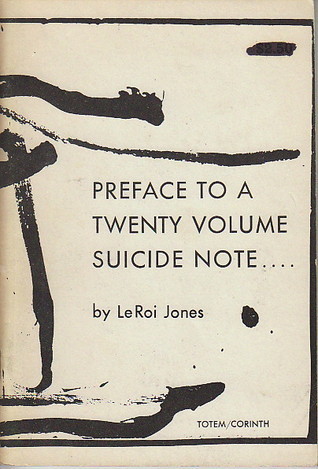What do you think?
Rate this book


47 pages, Paperback
First published January 1, 1961
envious blues feeling
separation of church & state
grim calls from drunk debutantes
If they
leave their brittle selves behind (our time's
a cruel one.
Children
of winter. (I cross myself
like religion
Children
of a cruel time. (the wind
stirs the bones
& they drag clumsily
thru the cold.)
These children
are older than their words,
and cannot dance.